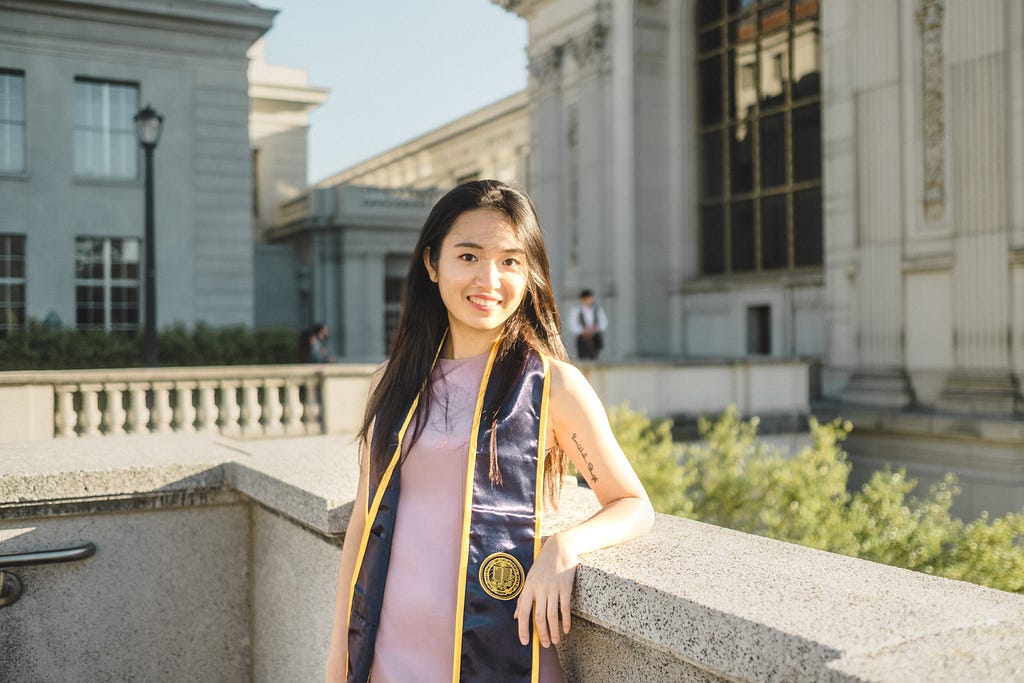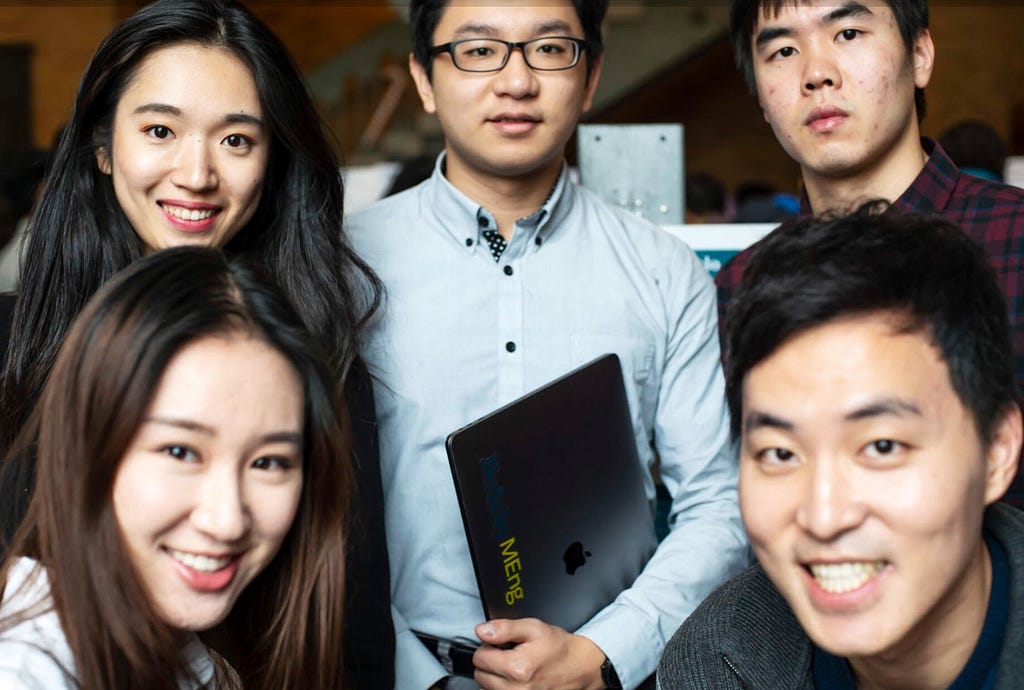
As a business major in undergraduate, why did you decide to come to MEng?
During the summer of my sophomore year, I had an internship in the finance industry and I felt like it wasn’t for me. I wanted to explore industries with a flatter organization — tech is the one that has the most of this. So during my junior year winter break, I flew to San Francisco alone. I cold-reached out to some alumni who worked at Tesla and LinkedIn as well as some who founded their own unicorn companies before the trip. After I landed, I visited them, learned about their jobs and the industry. Since I came from a liberal arts college, the alumni connection was close and people were happy to help me out. After that, the founder of a startup that I talked to introduced me to his investors. I then had an interview with the venture capital fund in South Bay. During the interview, I learned more about the culture of open communication and innovation in Silicon Valley and became even more interested in it. So I applied to Stanford Summer School. I got accepted and studied there during the summer of my junior year. There I took a graduate-level data science course. It was really challenging with a lot of math and statistics. It’s also in a field that I have little prior experience in. It requires knowledge about multivariable calculus and a lot of other advanced math which I haven’t taken before. But I managed to survive somehow. During that time, I also did ten informational interviews with venture capitalist because I was really interested in VCs. About one-third to a half of them told me that, in order to be a venture capitalist, you need to have an understanding of tech because a lot of VCs used to be entrepreneurs and came from a technical background. Because of this information I got, I began to think maybe I can combine my business background with something more technical. That’s why I decided to apply to MEng.
For you, what is the connection between engineering and business?
To be honest, I don’t think there’s a strong connection between the two because they are simply very distinct fields. But for me personally, coming from a business background help me think about the real-world application of engineering when I study it. On the other hand, many of my classmates who come from a STEM background are more interested in the fundamentals mechanisms of engineering.What is the biggest thing you’ve learned at MEng?
There are two. First, I’ve learned how to work with engineers. I’ve found that engineers think very differently from how people with a business degree think. I’ve learned a lot from that. Second, MEng also helped me think in a different way. Solving probability problems, doing math and writing codes require a different mindset. They have strengthened my logical and quantitative thinking.I understand that you are also very interested in art. For you, what is the connection between engineering and art?
From my perspective, both engineering and art create things (unlike business). When you are creating things, you need to hone your skills and focus on the details. For example, when I paint, I often have to focus on some really tiny details. It’s a painful process but at the end I feel really proud of what I have made. It’s similar to solving a math problem or writing codes. You have to practice a lot to be good in both fields.

How did you get interested in art in the first place?
I have been interested in it for a long time. I took a lot of classes in art during my freshman year because I was going to major in it. But after taking four of those classes, I realized that although I do like art, I want to create more impact and that’s why I picked business.What’s the most interesting project you worked on at MEng?

What’s one advice you would give MEng students?
Berkeley is right next to Silicon Valley and there are so many innovative things going on every day. For engineering students and students interested in business, you have so many opportunities to apply what you’ve learned to real-world problems. I think MEng really provides the knowledge and skills that students can use to solve real problems. This is what I appreciate the most about MEng. Christy Chen is studying IEOR at the Master of Engineering program at UC Berkeley. Before that, She graduated from Dickinson College with a degree in International Business and Management. Connect with Christy.Christy Chen: A journey from business to engineering was originally published in Berkeley Master of Engineering on Medium, where people are continuing the conversation by highlighting and responding to this story.


